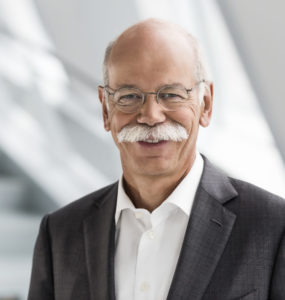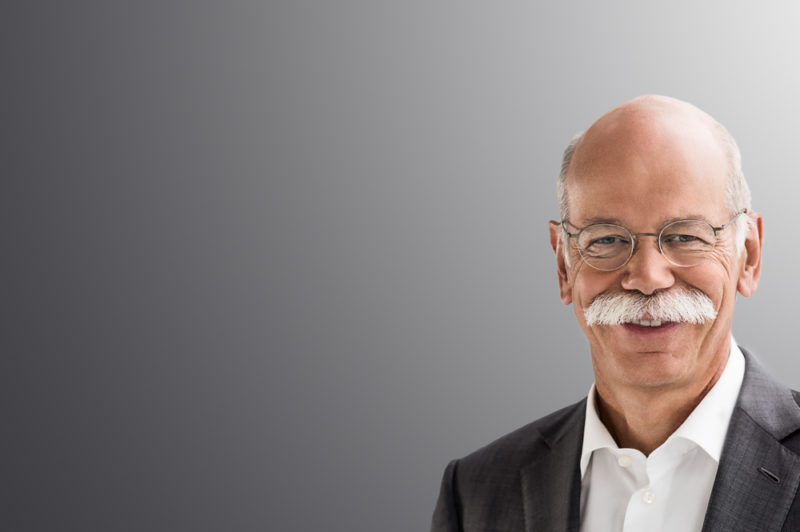
If there is one lesson we learned from the IT sector in these past years it is this: open systems tend to be more successful than closed systems. And I’m equally convinced: if we want to tap the potential of digitalisation in Europe, a closed system won’t get us there. So to take full advantage of digitalisation, the prerequisite is to stay open for innovation, collaboration and people.
Let me start with openness for innovation. Simply put: We should embrace the future. With digitalisation, there is an entire universe of opportunities waiting to be discovered. So instead of lamenting why something is impossible, or at least unlikely, and in any case not affordable, we should push big ideas. But that’s easier said than done.
Everybody knows: risk taking is typically not one of the core competences of big companies or the administration. Instead, we have entire departments dealing with the mitigation of risk. And there’s good reason for that. After all, it’s about securing hundreds of thousands of jobs. But if we get stuck minimizing our risks, we tend to overlook the biggest risk of all: stagnation. In the digital age, the path of least resistance is the most dangerous to follow.
Just to put this into perspective: Larry Page wants to cure cancer with nanoparticles. Mark Zuckerberg wants to connect the entire world. And Elon Musk wants to inhabit Mars. Don’t get me wrong. We’re not planning to turn Daimler into a health or space company anytime soon. But I really want to underscore one thing: the admiration for innovation.
So, how can we instill more of this brave spirit in our companies and, for that matter, in Europe as a whole? At Daimler, a first step was to create small teams within our company that are organized much like start‐ups. It’s about creating spaces: where risk taking is rewarded; with short decision paths; and with much room to maneuver.
By the way: Firms like Google, Apple or Facebook often generate big innovations not by themselves, but by acquisitions of smaller start‐ups: Google bought YouTube. Facebook bought Instagram, WhatsApp and Oculus. And Apple didn’t develop the Siri technology – they bought it.
This underlines: breakthrough innovations continue to be hard to come by even in the digital age. So, the bottom line is that we need to create a climate in Europe that pushes premature innovation rather than premature regulation. This way, it will become a lot easier to tap the full potential of the digital single market, a market estimated by the European Commission to amount to 415 billion euros. Talking about competitiveness in the digital age leads me straight to my second point:
Openness for Collaboration.
Take Steve Jobs. Many people would probably suggest his biggest innovation was the first iPhone in 2007. But I agree with those who say that he presented an even bigger innovation the following year, the App Store. Opening up his company’s flagship product and intellectual property to outsiders was really revolutionary. In becoming a model for the industry, it also became a rule of thumb: the more digital our world gets, the more platforms will be needed and developed. Google is a master of this game. They don’t only use the platform principle to build smart homes or connected cars – their parent company Alphabet is building an entire digital city from scratch.
Our challenge is that platform markets are fundamentally different from the traditional value chains of our industries. So in Europe, we are still adjusting to this both in terms of politics and business. Regarding the automobile industry, we’re already heading in the right direction in terms of platforms. A current example is the purchase of the mapping software Here. We not only closed the deal with BMW and VW. But we also kept the negotiation table open to others such as Amazon, Bosch or Microsoft.
Or take our Car‐to‐X platform, which we released with our new E‐Class. This technology enables the vehicle to continuously “talk” to its surroundings. The platform is kept open for third parties. This can make it possible for more cars to communicate with each other and the infrastructure. Looking ahead, does openness imply that we want to share everything with everybody? Of course not. In terms of data we believe that our customers should always have the power to decide what data to share with whom.
We all know: The data processed in vehicles is of varying sensitivity. That’s why it is essential to form vehicle data categories with different access rights. Certain datasets from defined categories could be made available to third parties – but only on the basis of customer’s consent. We call this idea Extended Vehicle Concept. An extended vehicle is understood as a vehicle with external software and hardware extensions for some of its features. To be able to use this technology we need reliable framework conditions throughout Europe. And we need them fast. Digitalisation does not only ask for a new approach to innovation and collaboration, but also for a new culture within our companies.
This brings me to my last point: openness for people.
I spoke about start‐up spirit earlier. But we all know: It’s not enough to build a few speedboats if the rest of the company remains about as agile as an oil tanker. Digitalisation calls for completely re‐thinking a company’s culture. In the old days, our approach would have been this:
Our board of management would find a solution, cram it down the organization, and everybody would “cheerfully” implement it. Very top‐down … and very German. Today, we’re taking another approach. To use politicians’ language: We are pursuing more of a “grass‐roots democracy.”
The program is called Leadership 2020 and aims at creating a new leadership culture at Daimler. The direction is set by a diverse team of international colleagues. They put everything on the table: Our hierarchies, performance evaluation, meeting culture – you name it: Nothing is sacred. Earlier this month we got a first look at their ideas – and it was inspirational to say the least. In fact, our board immediately approved more than 80 percent of the proposals!
All these examples demonstrate one thing: First and foremost digitalisation is about opportunities, not risks. And I believe: If we foster more openness, we will be able to seize these opportunities to the fullest. That’s not only true for our industry, but for Europe as a whole. Nowhere are our current struggles with unity more evident than in Brussels. The city has become a symbol for European crisis particularly on the topic of refugees and immigration.
So, I’d like to close with the personal story of a little boy. Orphaned at the age of ten, nobody saw a future for this kid. He was considered a charity case. Luckily, a non‐profit organisation took him in and educated him. His teacher saw great potential in the boy, so when he was offered a respectable job, he took his little student with him.
The name of the student was Wilhelm Maybach. And the teacher was none other than Gottlieb Daimler. Together they built the first gasoline engine, the first motor cycle and, simultaneously to Carl Benz, they invented the automobile. Maybach became known as the “king of constructors”. To this day his name stands for the upmost luxury in car manufacturing. Now, you could argue that Maybach was not a refugee. He was born about 50 kilometers from Stuttgart and never left the region.
But his social status as a lower class, penniless orphan is easily comparable to the hard conditions many refugees face today. Of course, not every refugee turns out to be a brilliant engineer. But we can take the story as a friendly reminder showing how much it can pay off to give people a fair chance. No matter where he or she comes from. We all know: There’s nothing to gain from isolation – neither in Europe, nor in any of its member states. Yes, it’s a hell of a job taking in hundreds of thousands of refugees, but there is also immense potential here.
So here’s the final thing on my wish list: We need a Europe that is not guided by narrow‐minded populist fear, but by an atmosphere that attracts talent from around the globe.
Dr. Dieter Zetsche is CEO of Daimler AG



